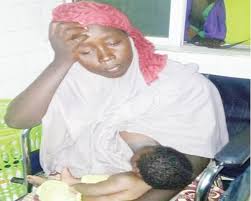The Federal Government’s Maternal and Neonatal Mortality Reduction Innovation Initiative (MAMII) has reiterated its commitment to drastically reducing maternal and newborn deaths across Nigeria, particularly in high-burden areas.
National Coordinator of the initiative, Dr. Dayo Adeyanju, stated this in Kaduna on Thursday, shortly after a four-day workshop aimed at developing strategies to curb maternal and neonatal mortality in the country.
Dr. Adeyanju said the initiative is being implemented in 172 local government areas nationwide, including seven in Kaduna state that have recorded some of the highest mortality rates.
He noted that the workshop led to the development of a comprehensive intervention document, which has been submitted to the Kaduna State Government for implementation.
“In the last four days, we worked closely with stakeholders in Kaduna in line with the compact between the Federal and State Governments to co-create a suite of interventions to address maternal mortality,” he said.
“We visited five communities to identify the key drivers of maternal deaths. Issues such as limited access to healthcare, transportation challenges, out-of-pocket expenses, and a shortage of health workers and equipment were observed. We also emphasized the need to strengthen maternal death reporting systems and stakeholder coordination.”
Dr. Adeyanju added that a task force has been inaugurated by the State Commissioner for Health to drive implementation of the roadmap, which was later presented to top government officials for necessary action.
“We commend the political will demonstrated by Kaduna State—from the Deputy Governor, who represented the Governor, to the Commissioner and health officials. We believe this document marks a vital step in reducing maternal deaths across the state,” he added.
Speaking at the closing ceremony of the workshop, Commissioner for Health, Hajiya Umma Ahmed, affirmed Kaduna state’s readiness to collaborate with the federal government to reduce maternal and neonatal mortality.
“Our commitment is visible in the ongoing overhaul of health infrastructure, including the upgrade of primary and secondary healthcare facilities, the completion of a 300-bed hospital, and the recent approval to recruit 2,000 health workers,” she said.
“This initiative came at the right time. It provided an opportunity for critical stakeholders to jointly develop a practical work plan. A technical committee has already been set up to ensure its implementation.”
She assured President Bola Tinubu and the Coordinating Minister of Health of Kaduna’s unwavering support for the initiative.
Meanwhile, as part of the engagements, council chairmen from the seven affected LGAs and traditional rulers met with Deputy Governor Dr. Hadiza Balarabe at Sir Kashim Ibrahim House, where the roadmap was formally presented by Dr. Adeyanju.
“The purpose of our visit is to present findings and recommendations that will guide Kaduna towards safer maternal health outcomes,” Dr. Adeyanju said.
Responding, the deputy governor restated the state’s dedication to reducing maternal mortality.
“Kaduna is fully committed to tackling maternal deaths. I trust the Ministry of Health will follow through on the action points in this report,” she said.

